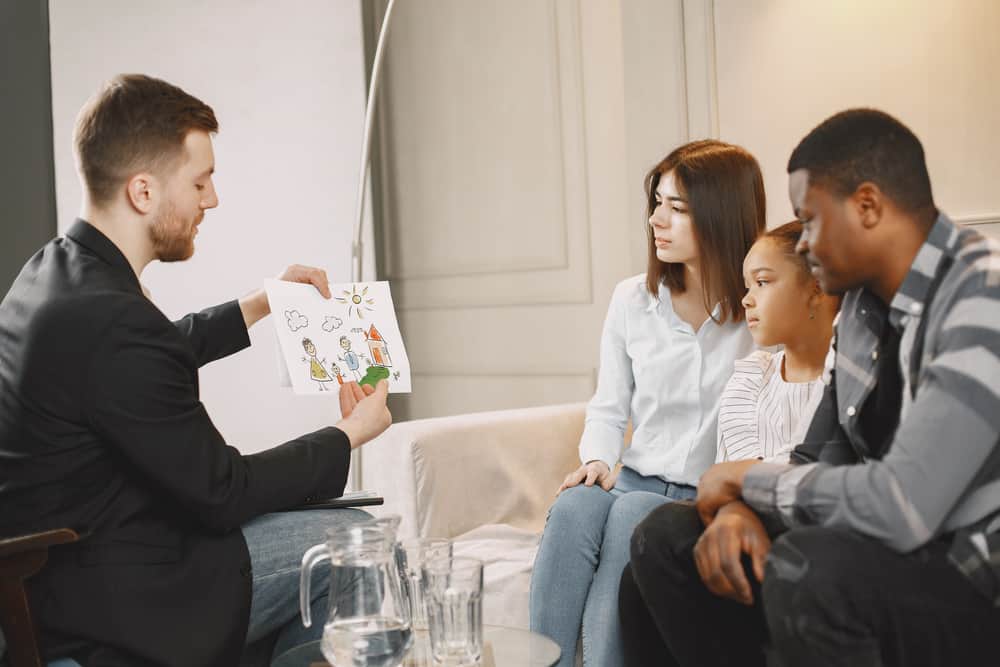
Family counseling is a great opportunity to strengthen your family's bond. This unique style of therapy can help you create a support network, heal past hurts, and move forward together. But many people are nervous about what to expect. That's natural! Fortunately, we can help you learn a little more about what happens in a session.
The First Session
The first family counseling session is a little different from the rest. This is the point during which your counselor will get to know you. During this session and the next one, you'll identify your overall goals.
Every counselor has a slightly different approach. They may also adjust their approach based on how many family members there are, what ages you are, and what issues you're working on.
During the first session of family counseling, your counselor will talk to all of you as a group. They may also choose to speak to each person individually. Oftentimes, they will have you fill out paperwork about yourself and your relationships to your family members. This gives them a better idea of the dynamics at play before getting started.
Some of the things that you'll cover in the first session include:
- The ages and occupations of each family member
- Responsibilities of each family member
- Any specific concerns or problems you'd like to address
- Everyone's general feelings about the family
- Any individual struggles that family members need help with
Your counselor will explain the confidentiality policies and how they conduct sessions. They might sketch out a rough treatment plan and assign you homework.
In addition, your counselor will often take time to highlight all the strengths that your family has. Instead of being all about your flaws, family counseling can show you where you all work well together already.
Ongoing Sessions
After the first session or two, you'll have a rough plan of action. This explains what you're going to tackle over the next time period. Everyone must be willing to participate in the exercises and share in the sessions.
During a family counseling session, your counselor will create an environment where everyone is free to speak. Their goal is to strengthen the family unit, not to take sides.
If you feel you can't be honest in front of another family member, your counselor may speak to you individually. But they will make sure that you can speak and have your voice respected in the group sessions.
There are a variety of specific goals that you might set. Some examples include:
- Siblings will learn to resolve differences peacefully and communicate clearly.
- Parents will support each other and divide the household workload evenly.
- Everyone will learn new communication tools to identify and express their feelings.
- Ongoing conflicts will be addressed and resolved, with amends made if necessary.
- Family members struggling individually will be able to seek the support and understanding of their loved ones.
- The family will process grief about a past occurrence and begin to heal.
Your exact goals will vary hugely depending on your needs. But over time, family counseling will help you better communicate and support each other. The goal is to have a more harmonious household, where everyone can thrive.
Homework
Oftentimes, part of family counseling is "homework." You don't leave all of your work in the office. You bring it home with you. At home, you'll practice your new communication tools and support methods.
The homework after each session will be tailored to your family's specific needs. Different family members might have slightly different assignments.
Sometimes the homework will be actual sheets of paper. Sometimes it will just be a goal to meet at home.
Some examples include:
- A mission statement that talks about how the family can help each other, change, and look toward the future.
- A goal to spend quality family time together at least twice before the next session.
- Time spent reflecting individually, then filling out reflection sheets.
- Practice of emotional regulation techniques like cognitive behavioral therapy.
- Practice communicating clearly, with a goal of using communication tools at least three times before the next session.
The homework is practical and furthers your goals. It is built not to exhaust you, but to give you space to grow and reflect.
Here at Greene Psychology Group in Raleigh, we specialize in counseling for all age groups. We offer family counseling, couples counseling, and individual counseling for children and adults. Call us today to schedule your first session and start on the path to healing.
